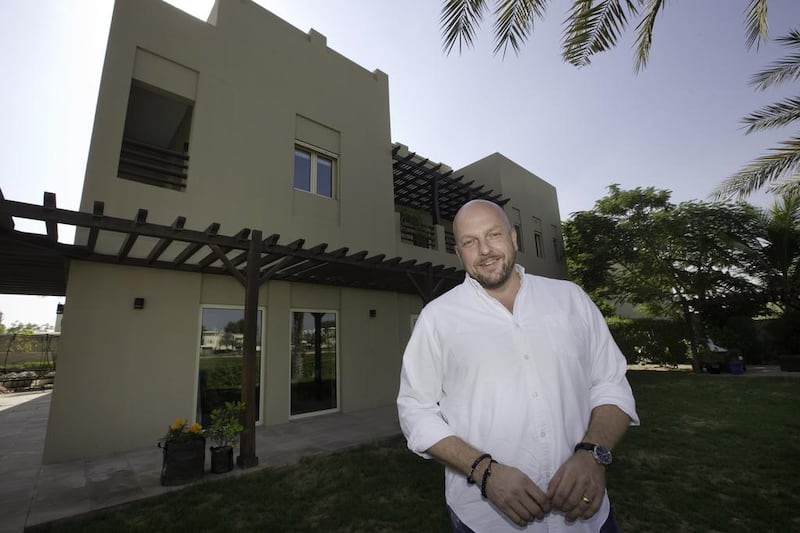DUBAI // With a spacious home, garden and swimming pool that accumulate utility bills of up to Dh13,000 a month in the summer, it is not surprising that Lars Narfeldt jumped at the chance of a free energy-efficiency makeover.
“For us, this was a no-brainer,” said the Swedish expatriate, whose 600-square-metre home in The Meadows, in Dubai, draws admiring gazes and often features in interior-design magazines.
His home is back in the news because the makeover is making inroads into his bills.
Mr Narfeldt is one of five residents given free retrofits of energy-efficiency devices in a pilot scheme launched in October by a Dubai company, Smart4Power.
In his home and in four others – in The Lakes, Al Muntazah complex in Jebel Ali, and two in the Arabian Ranches – the company altered air-conditioning and lighting, reduced water usage and used special film to help windows keep out the heat of the sun.
“We wanted to show that there is a lot of potential in terms of saving energy and water for the residential market and the only thing stopping people is that they don’t know what to do, they don’t know where to go and they don’t know really if it makes sense to save energy and water through retrofit solutions,” said Jesus Gutierrez, co-managing director of Smart4Power.
In each of the five properties, the company carried out an audit reviewing monthly utility bills and measuring variables including indoor temperatures, the performance of chillers and the flow rate of taps.
Inefficient lights were replaced with long-lasting and efficient LED ones and special reflective film was installed on some windows to reduce heat gain inside rooms.
By allowing less sunlight in, the window film is able to reduce the demand for cooling by between 10 and 12 per cent, said Mr Gutierrez.
Fixtures to lower the flow rate of taps and showers were installed, as were devices to improve the functioning of air-conditioning compressor units.
“It is giving a little bit more intelligence to the AC unit,” said Mr Gutierrez, explaining that in Mr Narfeldt’s home, six such devices were installed by Mplus+, a division of Emrill Services.
Nearly a month after the retrofit, Mr Narfeldt has seen a dip in his utility bills, although more savings should come when a water pipe leak, discovered during the home audit, is fixed.
Sabine Bremme, from Germany, whose Lakes villa is also part of the project, has seen her bills drop by Dh350.
The same devices were installed at her home, with the cost of Dh3,600 borne by Smart4Power.
“There was around 20 per cent saving in electricity and water,” she said. “It makes a difference.”
Companies are showing increasing interest in conserving resources as a way to balance their books, but private homes are a relatively untapped market, according to Mr Gutierrez.
“Through this pilot project we wanted to show that the market is there, that there are standard solutions, easy to install with quick wins and affordable for the people,” said Mr Gutierrez.
Ben Churchill, managing director of Emrill Services, said the company would partner Smart4Power in offering energy-saving packages to the 20,000 homes where it carries out maintenance. A “soft-launch” of the initiative is expected in January.
“For a long time we identified the consumer segment as one area where there is a requirement and desire from people to save energy,” said Mr Churchill.
“The initial phase is proving these technologies work.”
vtodorova@thenational.ae





